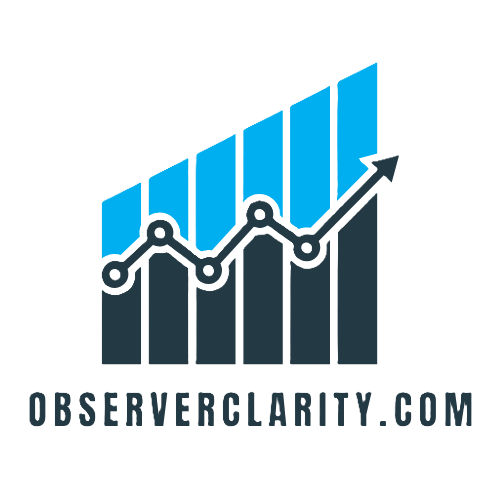In today’s fast-paced world, personal professional development isn’t just a buzzword; it’s the secret sauce to career success. Imagine climbing the corporate ladder while dodging the pitfalls of stagnation. It’s like playing a video game where every level you conquer unlocks new skills and opportunities. Who wouldn’t want that?
Personal Professional Development
Personal professional development encompasses the ongoing process of acquiring skills and experiences to enhance one’s career. This continuous pursuit equips individuals with the necessary tools to excel in an ever-evolving job market.
Definition and Importance
Personal professional development refers to activities aimed at improving skills, knowledge, and overall effectiveness in a career. Investing in this development leads to career growth and personal fulfillment. As individuals enhance their skills, they increase their marketability, making them more attractive to employers. Engaging in development activities boosts confidence and expands professional networks. Success hinges on adapting to industry changes, highlighting the importance of personal growth in maintaining relevance.
Key Components
Several key components contribute to effective personal professional development. Setting specific goals provides direction and measurable outcomes. Identifying strengths and areas for improvement promotes targeted growth. Participating in training and education opportunities enhances competencies and knowledge. Networking with peers and mentors facilitates sharing insights and experiences that benefit career paths. Lastly, self-reflection fosters awareness of progress, ensuring continuous improvement in professional journeys.
Setting Goals for Personal Professional Development

Setting goals defines the direction of personal professional development. Clear objectives guide efforts and measure success in the journey of career growth.
Short-Term vs Long-Term Goals
Short-term goals often act as stepping stones in professional development. Targets such as completing a course or attending a workshop can enhance skills quickly. Long-term goals shape the overall career trajectory. Examples include advancing to a managerial position or gaining a specific certification. Achieving short-term goals fuels motivation, while long-term goals provide focus and a broader vision. Balancing both types of goals ensures steady progress and fosters the ability to adapt to changing career paths.
SMART Goals Framework
Using the SMART goals framework brings clarity to objective-setting. Specific goals detail exactly what a person wants to achieve. Measurable goals include defined criteria for progress. Achievable goals ensure that objectives are realistic, considering current capabilities. Relevant goals align with personal ambitions and career aspirations. Timely goals establish deadlines that create urgency. Applying these principles transforms vague ideas into actionable strategies, making success more attainable in professional development.
Strategies for Effective Personal Professional Development
Effective personal professional development combines various strategies to advance one’s career. Prioritizing continuous learning, networking, and self-reflection creates a well-rounded approach.
Continuous Learning and Skill Acquisition
Continuous learning drives career progression. Engaging in workshops, online courses, and certifications helps individuals gain new competencies. Upskilling enhances job performance and adaptability in changing markets. Identifying relevant training opportunities can connect individuals with industry trends. Consider seeking out skill acquisition that aligns with career goals, ensuring personal professional development stays relevant. Embracing feedback from peers and mentors promotes ongoing growth, reinforcing a commitment to skill enhancement.
Networking and Relationship Building
Networking fosters valuable connections essential for career advancement. Building a robust professional network expands opportunities and provides insights into industry developments. Attending conferences and industry events enables meaningful relationship-building. Engaging with peers and mentors can lead to collaboration and knowledge exchange. Prioritizing genuine connections over superficial ones often yields more significant benefits. Maintaining relationships through regular communication ensures lasting professional bonds, amplifying access to potential job openings and referrals.
Assessing Your Progress
Assessing progress serves as a vital step in personal professional development. Continuous evaluation helps individuals stay aligned with their goals and objectives.
Self-Reflection Techniques
Utilizing self-reflection techniques enables professionals to identify strengths and areas for growth. Journaling enhances understanding of experiences and feelings. Asking targeted questions about achievements and challenges fosters deep insights. Setting aside dedicated time for introspection can reveal patterns in behavior and thought processes. Engaging in mindfulness practices supports clarity and focus, promoting a clearer vision of personal and professional aspirations.
Gathering Feedback
Collecting feedback provides an external perspective on one’s performance. Seeking input from peers, mentors, or supervisors reveals insights that self-assessment might miss. Structured feedback forms offer a framework for focused input, highlighting specific areas of improvement. Hosting regular check-ins or performance reviews maintains accountability and encourages growth. Embracing constructive criticism assists in refining skills and adjusting strategies for professional advancement.
Conclusion
Personal professional development is an essential journey for anyone aiming to thrive in today’s competitive job market. By investing time and effort into acquiring new skills and experiences, individuals not only enhance their marketability but also boost their confidence and satisfaction in their careers. Setting clear goals and engaging in continuous learning are vital strategies that pave the way for success.
Networking with peers and mentors opens doors to new opportunities and insights, while regular self-reflection keeps professionals aligned with their aspirations. As industries evolve, staying committed to personal growth ensures that individuals remain relevant and ready to tackle new challenges. Embracing this ongoing process will lead to a fulfilling and successful professional life.




